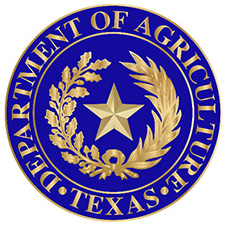Consumers will pay higher meat prices through 2020
Grocery store prices for meat are declining after their springtime coronavirus surge, but more slowly than expected, meaning that shoppers will pay noticeably more at the meat counter this year than in 2019, said USDA economists. In the monthly Food Price Outlook, the USDA forecast meat prices will rise 6.5 percent this year, more than double their usual rate.

When the West Coast wildfires are out, can mushrooms help with the cleanup?
When the worst wildfire season on record in the West finally subsides, it will give way to another potentially devastating environmental crisis: toxins from charred and melted plastics, electronics, and other household materials leaching into watersheds, endangering residents, agriculture, and ecosystems.
Judge ousts Pendley, may void Interior agency’s orders, too
Trump appointee William Perry Pendley served unlawfully as acting head of the Bureau of Land Management for 424 days, a U.S. district judge ruled in ordering Pendley’s immediate removal from office. Chief District Judge Brian Morris, based in Great Falls, Montana, said he would hear arguments in the near future on which of Pendley’s orders must be vacated.
TODAY’S QUICK HITS
Concealing Covid-19 on the farm: Farmers in 10 states employed similar methods of delay and resistance to conceal the potential presence of Covid-19 among the tens of thousands of seasonal and migrant workers who harvest U.S. crops this spring and summer, according to the Documenting Covid-19 project at Columbia University and shared with the Washington Post. (Washington Post)
Threatened, not endangered: The Interior Department proposed “downlisting” the red-cockaded woodpecker to the status of threatened rather than an endangered species now that there are 7,800 clusters of the bird in 11 states, which once was common from New Jersey to Florida and as far west as Texas and as far north as Missouri. (Interior)
Thousands of companies sue over tariffs: Roughly 3,500 U.S. companies have sued the Trump administration in the U.S. Court of International Trade in the past two weeks over tariffs imposed on more than $300 billion of Chinese products as an unlawful escalation of the Sino-U.S. trade war. (Reuters)
Bag ban at New Jersey supermarkets: Gov. Philip Murphy is expected to sign legislation that would make New Jersey the first state in the nation to ban single-use paper bags in supermarkets as well as single-use plastic bags in stores and restaurants (New York Times)
U.S. cattle inventory on the rise: There were 11.4 million head of cattle in U.S. feedlots at the start of this month, the highest Sept. 1 inventory in 24 years, according to the monthly Cattle on Feed report. (USDA)
A good season for lobster fishermen: For the ninth year in a row, Maine fishermen caught more than 100 million pounds of lobster, and market prices, low in the spring due to the pandemic, picked up in August to the levels seen in a typical summer. (Associated Press)
ON THE CALENDAR
Monday
Agricultural Business Council of Kansas City holds annual Ag Outlook Forum online this year due to pandemic, 9 a.m. ET. Scheduled speakers include chief executive Esther George of the Kansas City Federal Reserve Bank and U.S. chief agricultural trade negotiator Gregg Doud.
Agriculture Secretary Sonny Perdue and state agriculture officials view agricultural damage from Hurricane Sally in Summerdale and Loxley, in the southeastern corner of Alabama, and in Jay, in the adjoining western panhandle of Florida. The tour begins in Summerdale at 1:10 p.m. ET and concludes in Jay at 4:40 p.m. ET.
EPA administrator Andrew Wheeler and Republican Rep. Pete Stauber meet agricultural stakeholders at a farm in north-central Minnesota, 3:30 p.m. ET. The meeting follows a tour by Wheeler of Brownfield sites in St. Cloud at 1:15 p.m. ET.
USDA issues weekly Crop Progress report, 4 p.m. ET.
Tuesday
Senate is expected to vote on HR 8337, to fund the government through Dec. 11. A vote to end debate can be requested at 5:30 p.m. ET and, if successful, would be followed by a vote on the bill, which includes $8 billion for child nutrition programs.
Association of Equipment Manufacturers and Agri-Pulse webinar, “The intersection of rural America and manufacturing: A preview of election issues,” noon ET. Panelists are Reps. Xochitl Torres Small, New Mexico Democrat, Dusty Johnson, South Dakota Republican, and Kip Eideberg, head of AEM’s Washington office.
USDA releases Fruit and Tree Nut Outlook, 3 p.m. ET.
Wednesday
UDSA releases annual Small Grains and quarterly Grain Stocks reports, noon ET. Analysts expect a sharply smaller, but still very large, figure for the soybean stockpile as of Sept. 1, when the 2020/21 marketing year opened. A Bloomberg survey found that analysts peg the soybean carryover at 578 million bushels vs. 909 million one year ago. The record carryover was the 909 million bushels of 2019/20; the second-largest is 574 million bushels at the end of 2006/07. The corn carryover is expected to be similar to the 2.22 billion bushels of a year ago.
Organic Trade Association holds a briefing on organic farming and mitigating climate change, 1 p.m. ET.
USDA releases monthly Agricultural Prices report, 3 p.m. ET.
Thursday
House Agriculture subcommittee on conservation hearing online, “Challenges and successes of conservation programs in 2020,” 10 a.m. ET.











